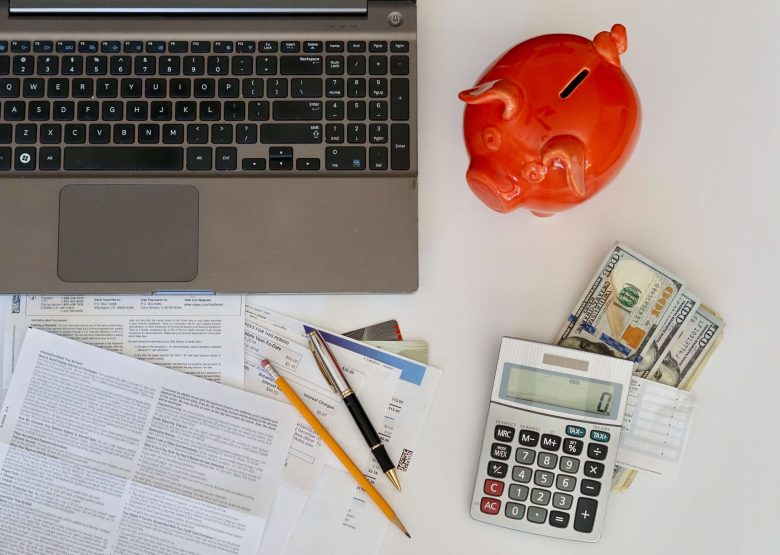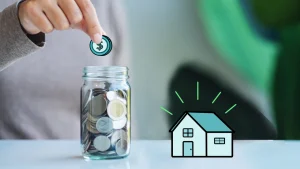Debt can impede your ability to fully experience life. The constant pressure of monthly payments and interest rates can make you feel powerless. What if you broke free? Imagine waking up one day with no bills and being able to spend your money freely. Paying off debt quickly can lead to financial freedom.
In this blog post, we’ll discuss practical ways to regain control of your finances. We’ll provide you with all the information you need to understand the different types of debt and create a budget. Let’s explore ways to eliminate debt!
The Importance of Debt Freedom
There are many ways to live debt-free. It can relieve financial stress and bring inner peace. You don’t have to worry about missed payments or interest. Financial freedom gives you the ability to choose your own path without having to pay bills regularly. Travel, study, or start a business; it’s all possible.
Living debt-free can improve your credit score and financial health. That means lower interest rates on loans for larger purchases, like cars and homes. Living debt-free improves your mental health. Freedom is essential to personal progress and happiness—it’s something money can’t buy. This lifestyle allows you to focus on what’s important, rather than just getting by.
Types of Debt and Their Financial Impact
Each type of debt can have a different impact on your financial situation. Credit card debt carries high interest rates and is difficult to repay. Continuing to accrue debt can put a strain on your monthly budget. Student loans, while lower in interest, are more expensive. They impact your current finances and future opportunities, like buying a home and saving for retirement.
Other major sources of cash flow disruption include personal loans and medical loans. Left unchecked, previously manageable debt can grow and cause stress. Understanding these categories can help you develop a personalized repayment strategy. Each type of debt will impact your short-term and long-term budget and financial goals differently.
Budget for Debt Repayment
Anyone who wants to pay off debt needs a budget. It guides you to financial independence. Make a list of all sources of income. Include all income, including part-time work. Knowing how much income you have will help you set realistic goals. Then, record your expenses correctly. Divide it into fixed expenses (rent, utilities) and variable expenses (groceries, entertainment). Clearly indicate where to cut back.
Give each category an amount based on priority. Prioritize necessities over pleasures. Set aside some money to pay off debt. Small payments will help you pay off your debt faster. Review and adjust your budget regularly. Financial planning should evolve with life! Staying flexible will keep you engaged and focused on a better financial future.
How to Pay Off Debt Fast
The avalanche method is one of the fastest ways to pay off debt. List debts by interest rate, from highest to lowest. Pay extra on the portion with the highest interest rate while paying the minimum amount on the other portions. Another approach is to “snowball.” This requires you to start with minimal debt and build momentum. Psychological encouragement can be a motivating aid.
It can help to consolidate high-interest debt into a starter loan or credit card with 0% interest. This can potentially reduce your monthly payments and interest charges. Automate payments where possible to reduce your debt quickly and stress-free. Set due dates for bills and track your progress. Seeing your numbers go down can be motivating!
Seek Professional Help
Professional guidance can be crucial when managing your debt becomes unmanageable. Credit counseling is provided by financial experts. They provide guidance based on your specific circumstances. These experts can help you budget and manage your debt. They can negotiate with creditors on your behalf to reduce your interest rate or monthly payment.
Debt consolidation is another option. It involves combining loans into a single, lower-interest loan. Simplify payments by focusing on one monthly bill instead of multiple ones. Both options have their pros and cons, but both can help you regain control of your finances. A knowledgeable professional can explain the different paths to you and help you choose the best path.
Stay Motivated and Focused on Your Goals
Staying motivated while paying off debt is tough. But making small adjustments regularly can help. Set clear, achievable goals. Break a large debt into smaller milestones to celebrate progress. Visual reminders help. Put your financial goals on a vision board where you can see them every day. Constantly reminding people what’s at stake can be motivating.
A network of supportive friends and family who understand your path can help you get through tough times. Sharing successes and failures promotes accountability. Don’t forget to reward yourself after you’ve executed your plan. Rewarding yourself with something modest after each milestone makes the process more enjoyable. Learn about personal finance through books and podcasts. New insights can rekindle your passion and show you why you can be debt-free.
Prevent Future Debt
A solid financial foundation is essential to preventing debt. Start an emergency fund. Set aside three to six months for unforeseen expenses. Then spend wisely. Separate your wants from your needs before you buy. This simple habit can help you avoid impulse buys and debt.
Learn about personal finance. Understanding interest rates, credit scores, and your budget can help you make decisions. Set short-term and long-term financial goals. Goals keep you focused on what’s important, whether it’s saving money for a house or planning a vacation. Check your balance regularly. Adjusting your budget as your circumstances change can help you stay in control and avoid debt.
Conclusion
Achieving financial freedom takes time and planning. Starting to pay off your debt can be life-changing. Every little achievement counts, like paying off a credit card or staying within your budget for a month. Stability increases with each step.
This technique can help you pay off debt and develop better financial habits. This shift in mindset can help you make smarter decisions. Perseverance is necessary, but setbacks are possible. Clear goals can help you overcome difficulties. Manage your finances today to secure and enrich your future. Prioritize your financial freedom and inner peace.
FAQs
1. A snowball strategy for paying off debt?
Use the snowball method to pay off the small debts first. Pay the minimum payments on all your remaining debts and use the extra money to pay off your smallest balance. Once you have paid off that loan, move on to your next, smallest loan. This strategy gains momentum through quick gains.
2. How long does it take to pay off my debt?
The total amount owed, interest, and monthly payments determine the schedule. Creating a comprehensive budget will help you understand your options.
3. Should I prioritize paying off high-interest debt or low-interest debt?
Consider high-interest debt because it takes longer to pay off the interest. If you’re looking for small wins, start by reducing your debt to keep your repayment plan motivated.
4. Is credit brokering valuable?
If you’re feeling overwhelmed or worried about managing your finances, credit brokering can help. Professionals can provide you with tailored guidance and techniques.
5. What can I do to stay debt-free after I pay off my debt?
Start with an emergency fund and a sensible budget. Developing healthy spending habits can also help you avoid debt.




